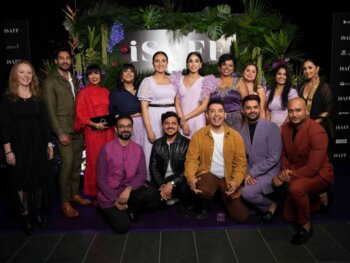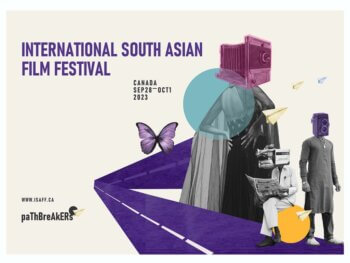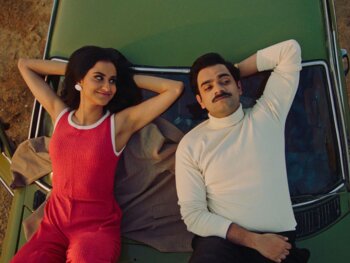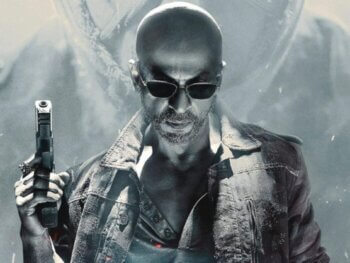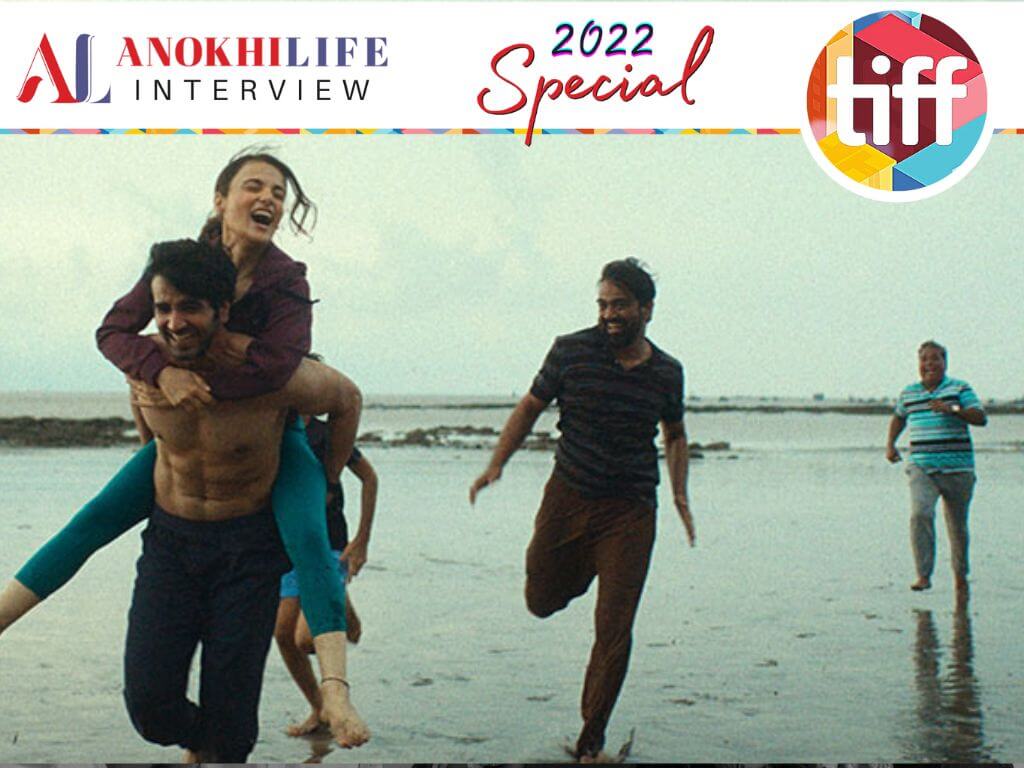
Director Shubham Yogi Discusses His Uplifting Cricket Dramedy “Kacchey Limbu” Starring Radhika Madan
Entertainment Oct 04, 2022
Kacchey Limbu, which premiered at the Toronto International Film Festival, casts rising star Radhika Madan as a young woman in Mumbai who creates her own Bad News Bears-esque cricket team. This puts her across the pitch from her own brother (Rajat Barmecha) — and both of them at odds with their disapproving parents. First-time feature director Shubham Yogi tells us why the cricket pitch is just the right arena for a story about embracing your passion and breaking free from the world’s expectations, and how Madan brought much more to this film than just her acting chops.
“Kacchey limbu” (or “unripe lime”) is a cricket term for a young, rough-around-the-edges player who’s still figuring it all out. That can certainly be applied to upstart cricketer Aditi (Pataakha breakout Radhika Madan) — but it also extends to her life off the pitch. Not exactly sure what her path should be, Aditi entertains the notion of becoming a fashion designer, while her parents have a more traditional path like medicine in mind for their daughter. Her brother Akash (Rajat Barmecha) is under that same parental scrutiny, acquiescing to their demands that he go on corporate job interviews, though his one and only ambition is to play professional cricket.
Things change when Akash is accepted onto a squad in the “underarm premier league” (where the game is played in the streets, as opposed to the stadiums); this unexpectedly opens the door for cricket-loving Aditi to do the same, elbowing her way into the male-dominated sport with her own team of fellow underdogs, busting loose from society’s expectations and taking a first step towards carving out her own path in the world. It also sets up an intense sibling rivalry — and some very tense dinner-table conversations with mom and dad.
Weaving together all the comedy, poignancy and sports drama is Shubham Yogi, making his feature debut here. During the festival, the director gave Anokhi Life the play-by-play on his new film.
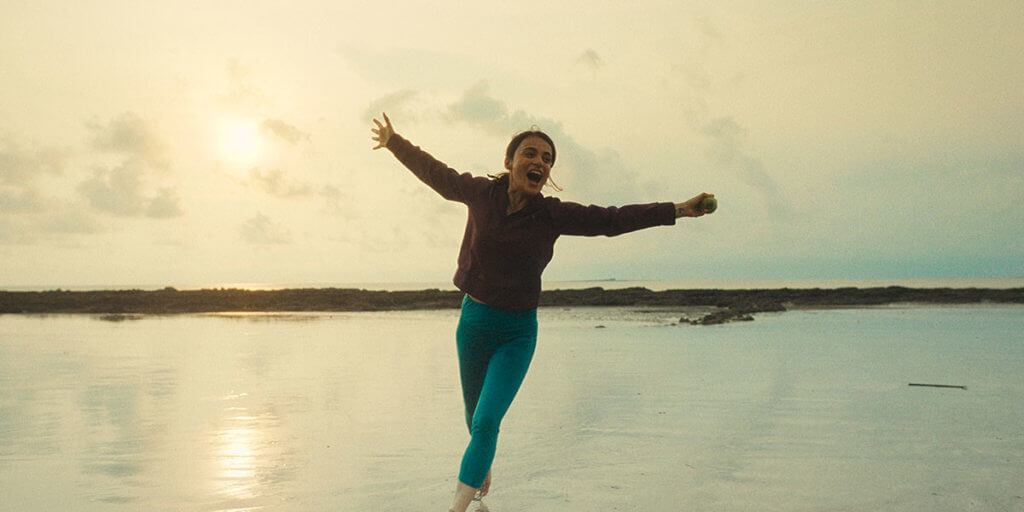
Matthew Currie: Making a movie — any movie — is an intense, arduous, lengthy process. Why was this the story you were willing to commit so much of your time and yourself to?
Shubham Yogi: The story’s genesis is in the daily life experiences of living in Mumbai. It’s a story about millennials and the kids from Gen-Z breaking out of the generational conditioning they inherit from their families to follow their dreams. This was also my story and the story of my friends. We had to find our own voice and learn to assert it to pursue our passions. Otherwise, we would have gone on to follow the dreams that were dreamt for us by society.
MC: Does the “sports” angle allow for the exploration of a family dynamic that a more straightforward drama would not? Sports dramas are never really about just sports . . .
SY: Absolutely. The cricket pitch is just the arena where the story unfolds. The story isn’t about cricket. Cricket in India is a lot more than just a game. It is a way of life. And it serves as a great setting for characters to express themselves. Cricket allows us to see who the character is in times of victory and defeat.
MC: The TIFF primer on this film mentions Bend It Like Beckham and Love & Basketball. How do you feel about those comparisons?
SY: These are big boots to fill. Both Bend It Like Beckham and Love & Basketball were landmark sports films. But I feel the comparison we draw with them is for the essential similarity in the “soul” of our film and the spirit of these two. We too, in our heart, are a coming-of-age story. Our film too is also about a young girl trying to find her identity in a world where she isn’t allowed to identify herself beyond the name and purpose given to her by the patriarchal society. If we are able to push the envelope with our story, like these films before us, it would be an honour to pass on the baton.
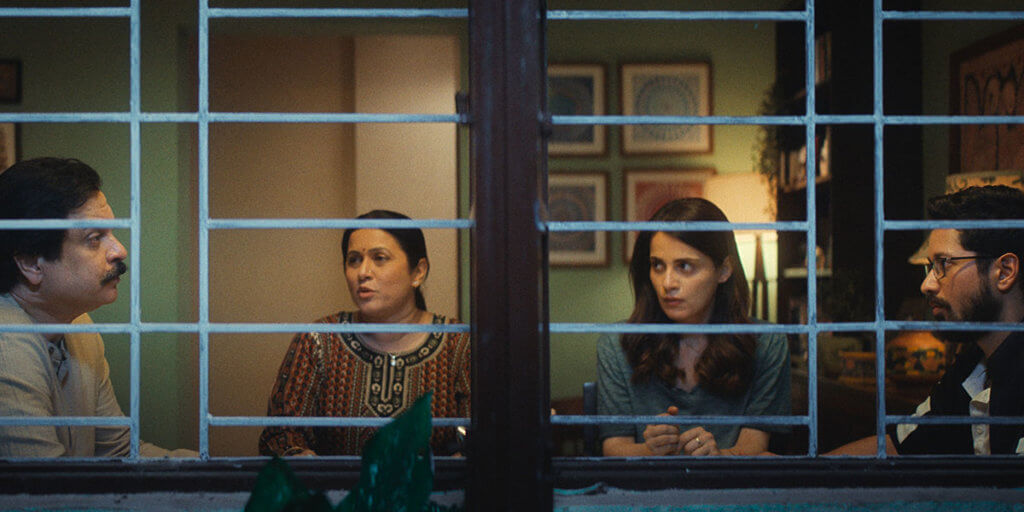
MC: Tell us about the singular power of Radhika Madan.
SY: Radhika’s quiver is full of special abilities as a performer. For me, she is special because she is unafraid to ask questions. She asks questions till she’s satisfied about your reasons to approach a scene in the way that you intend. These questions frequently help reveal routes and spark ideas that may not have been a part of the original plan. That makes her a valuable collaborator, and not just a performer.
MC: How did your conception, your understanding of the story you were telling, change over the course of making this film?
SY: To be honest, not much changed from the idea that I put on page to the final edit that we locked of the picture. But it did evolve and find a life of its own. One aspect that surprised me about the final film is how funny it is. It was always meant to be a fun film, but it sprouted into a funny film as well.
MC: What was the most challenging moment you faced during filming?
SY: The toughest challenge we faced was before we even reached set; it was the pandemic and the resultant lockdowns. We were ready to start principal photography twice when we had to stop due to COVID. But the film and I have been blessed with some of the most supportive producers in the industry. Neha Anand with Pranjal Khandhdiya from Mango People and Shobha Sant with Jyoti Deshpande from Jio Studios did not flinch once when we had to stop all work and pause the picture for the safety and well-being of the team. They supported us and kept us all safe and healthy throughout the lockdowns. They made sure that they provided everything needed for the team to continue prep while the shoot was delayed, and assured us that we will restart at the first opportunity. And we did. The crew was happy to wait because they trusted the producers and loved the script.
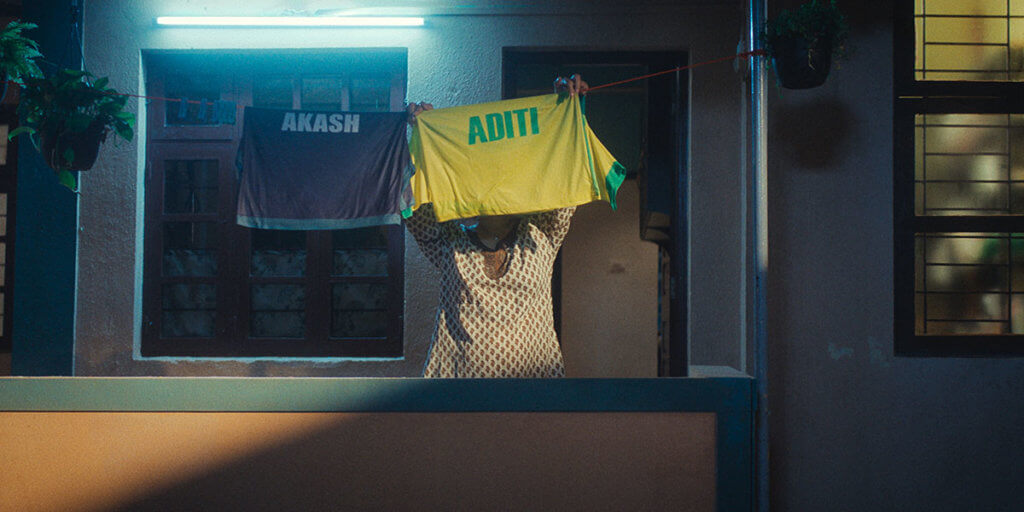
MC: If you could go back in time and give yourself one piece of advice at the beginning of production, what would it be?
SY: Have fun even when it rains and the days seem impossible. You are well taken care of. Your producers and HODs [heads of departments] love the film and they will help you beyond their selves to make a good picture. You are not alone.
MC: Simply put, what do you want audiences to take away from the experience of seeing Kacchey Limbu?
SY: That it’s never too late to grow up. And it’s OK to not know what you want even when you grow up. We are all Kacchey Limbus. But we’ll be fine.
Main Image Photo Credit: www.tiff.net
Matthew Currie
Author
A long-standing entertainment journalist, Currie is a graduate of the Professional Writing program at Toronto’s York University. He has spent the past number of years working as a freelancer for ANOKHI and for diverse publications such as Sharp, TV Week, CAA’s Westworld and BC Business. Currie ...




































































































